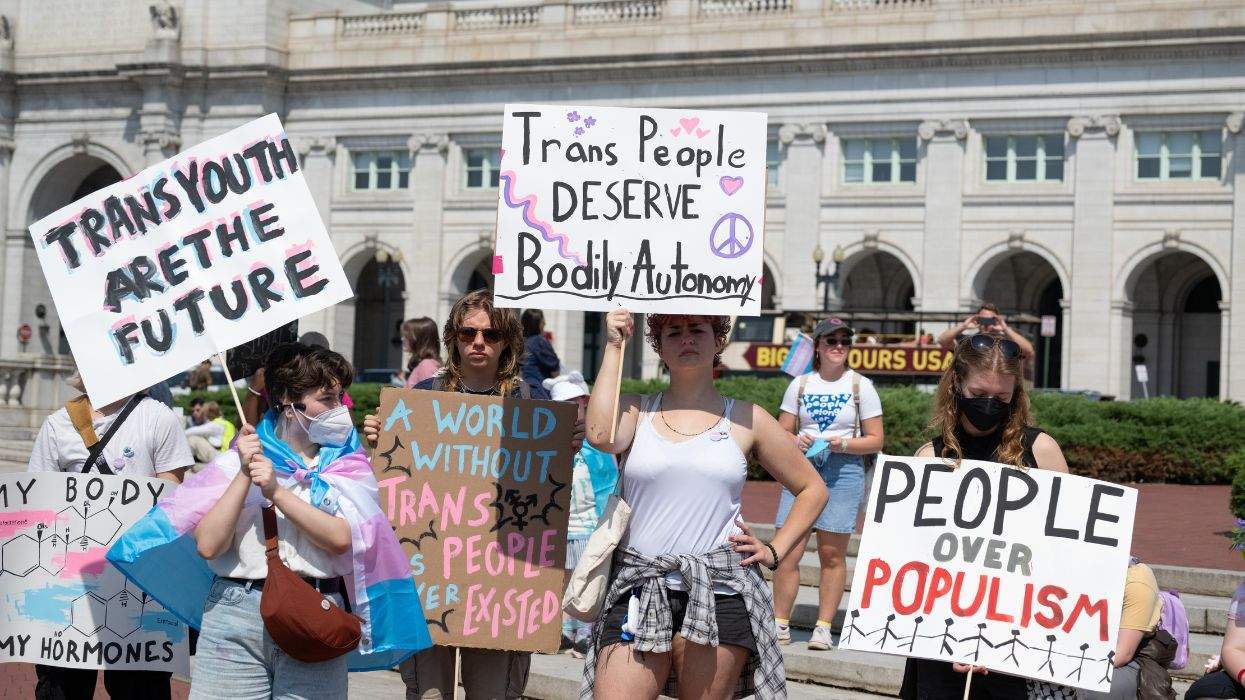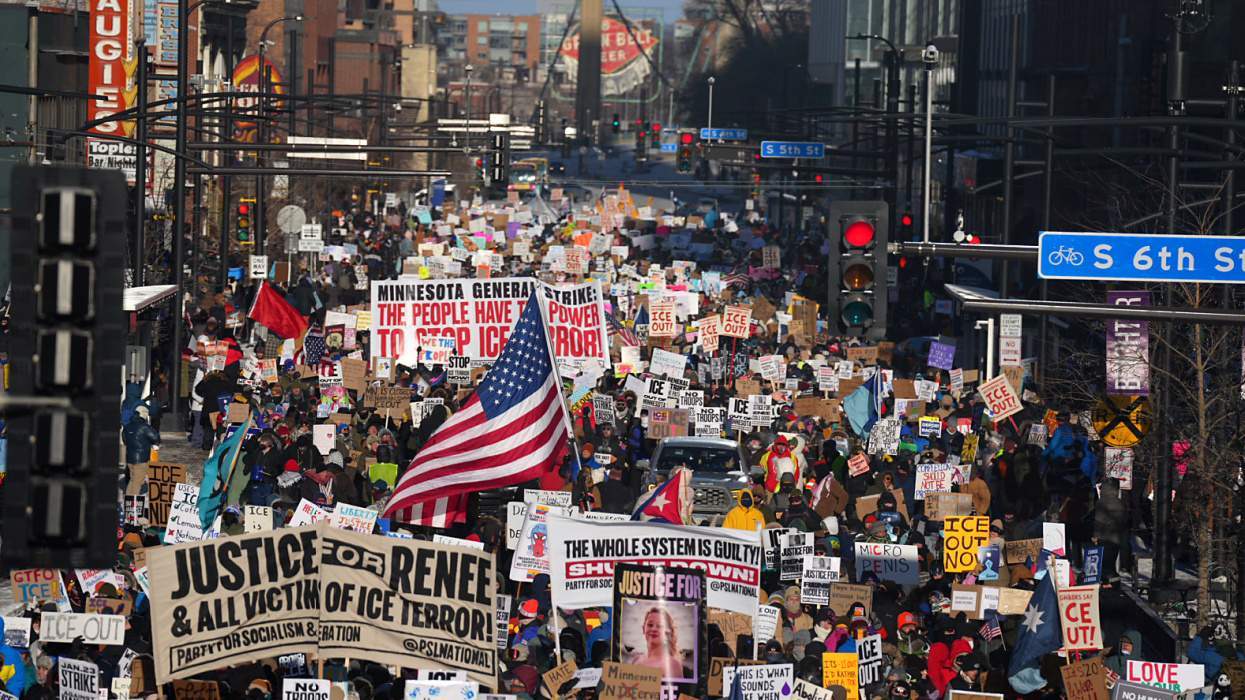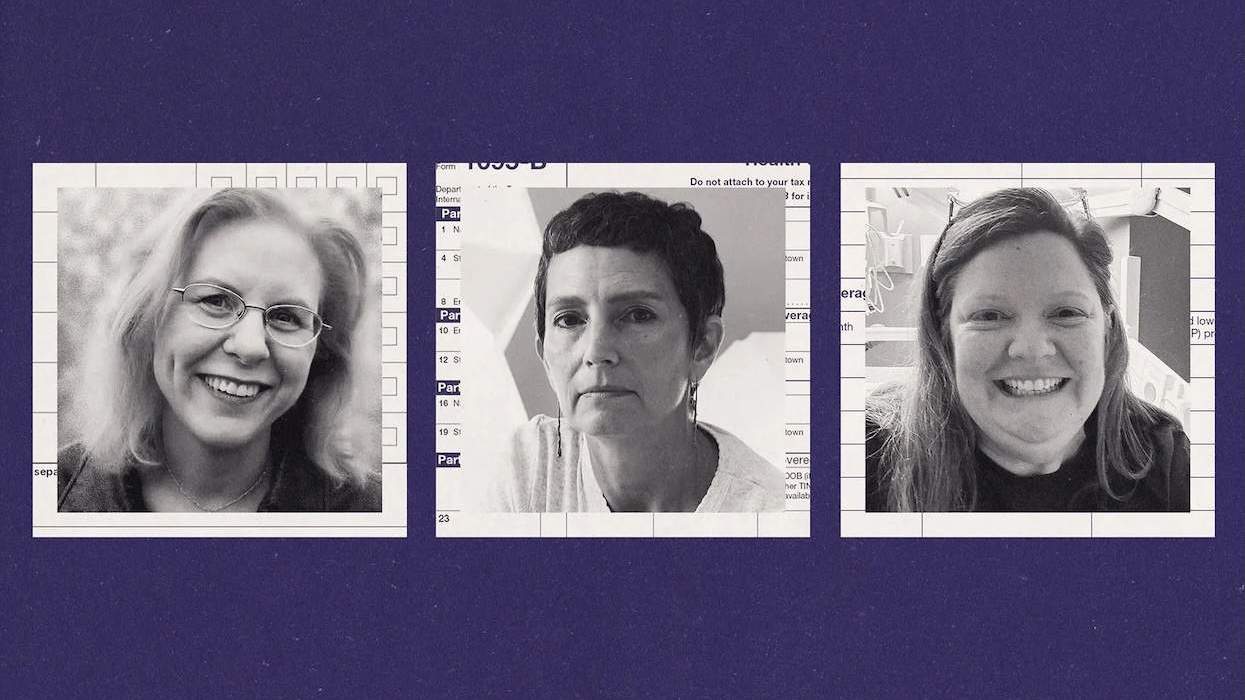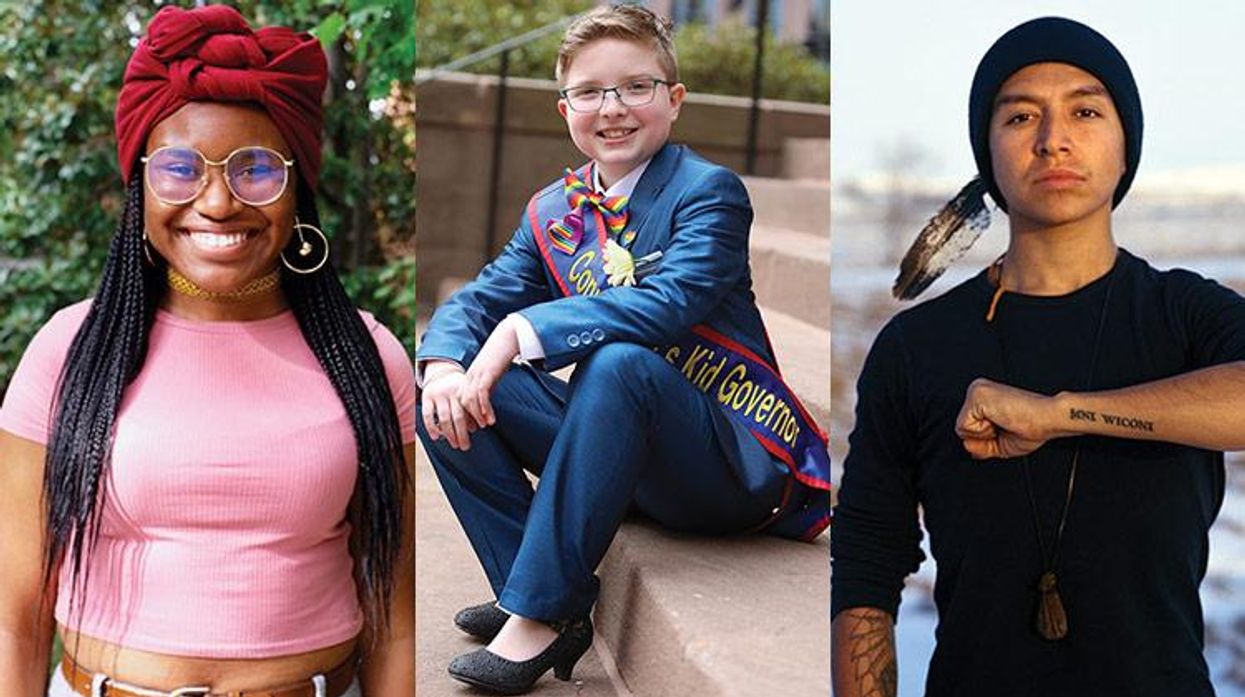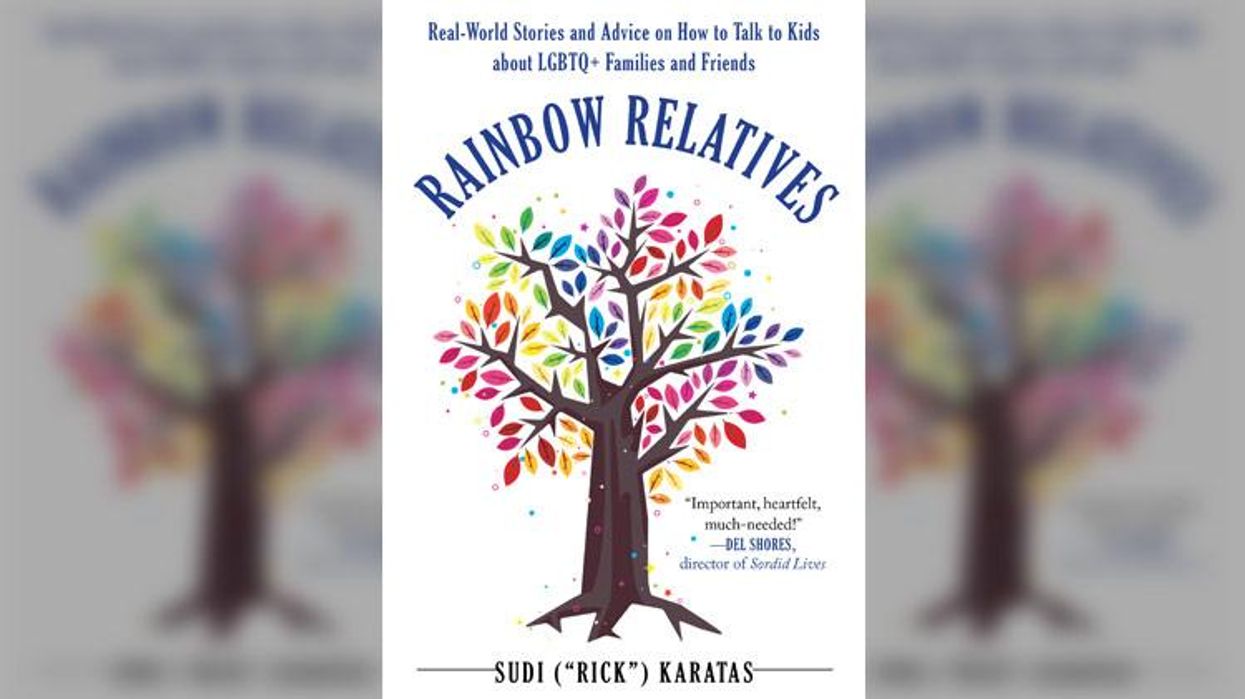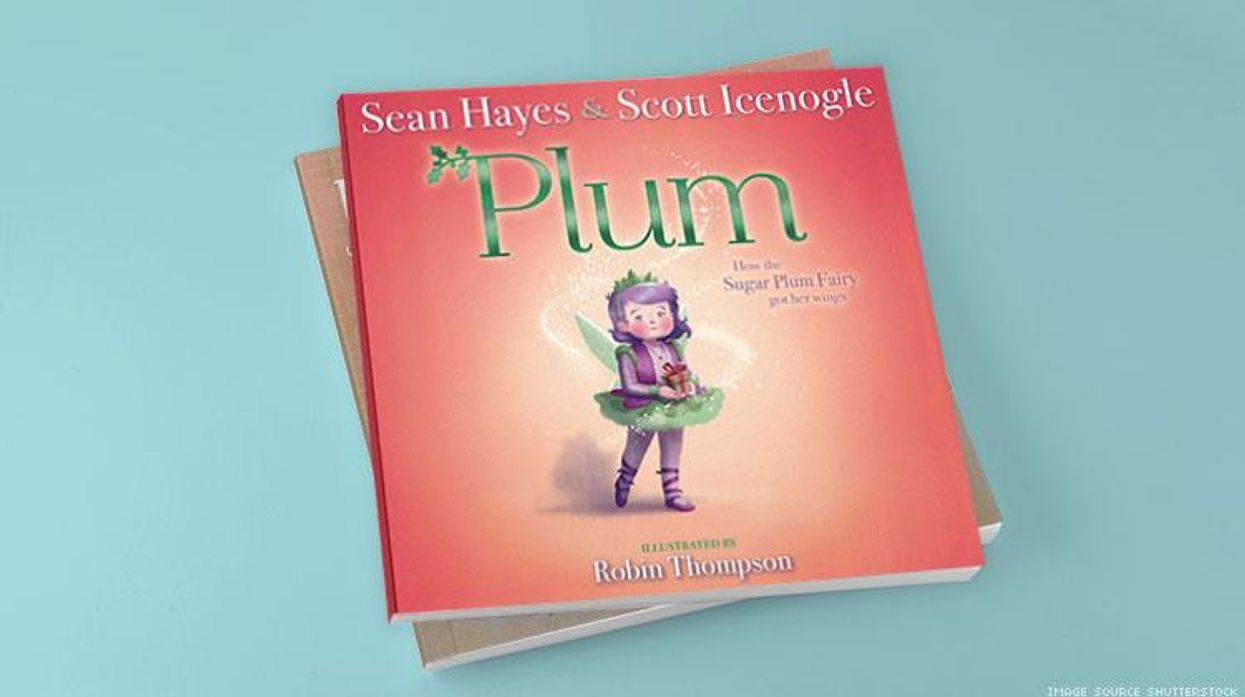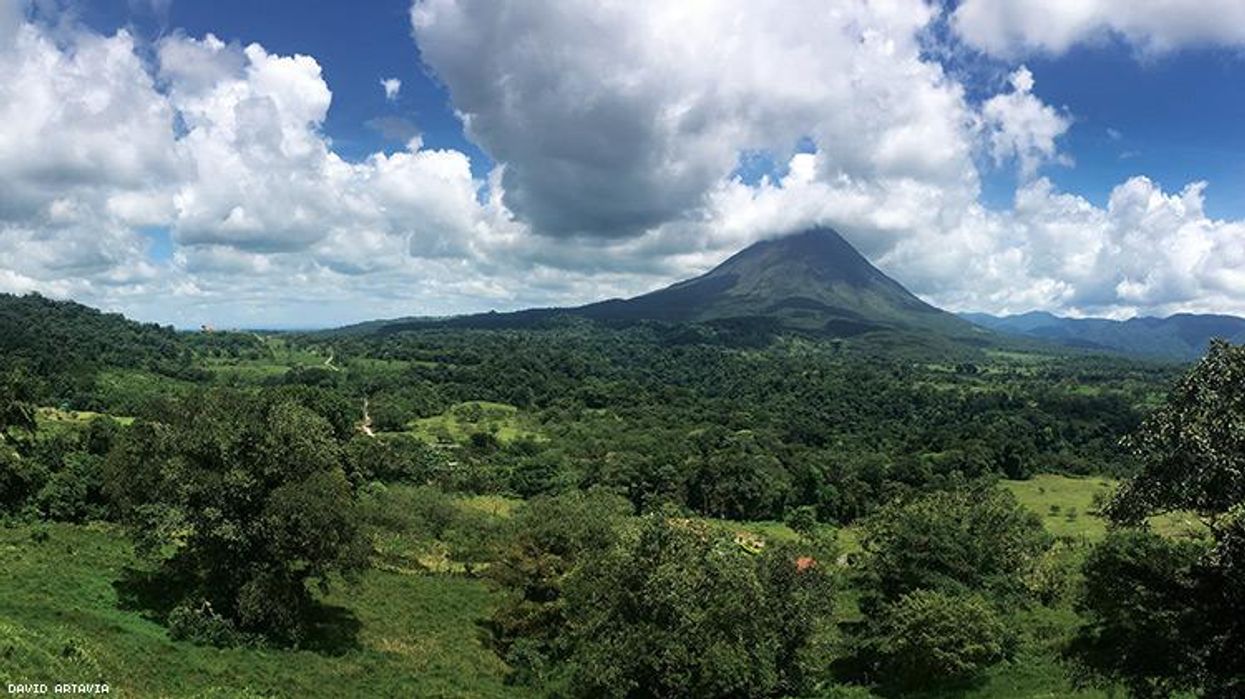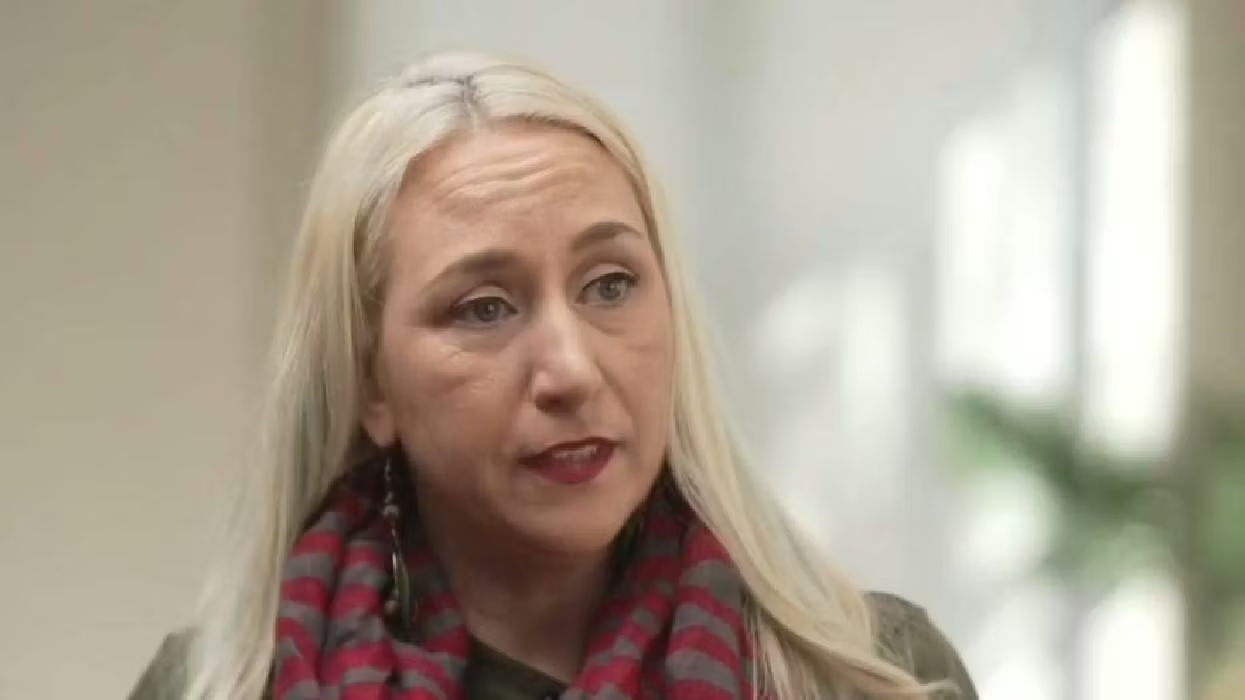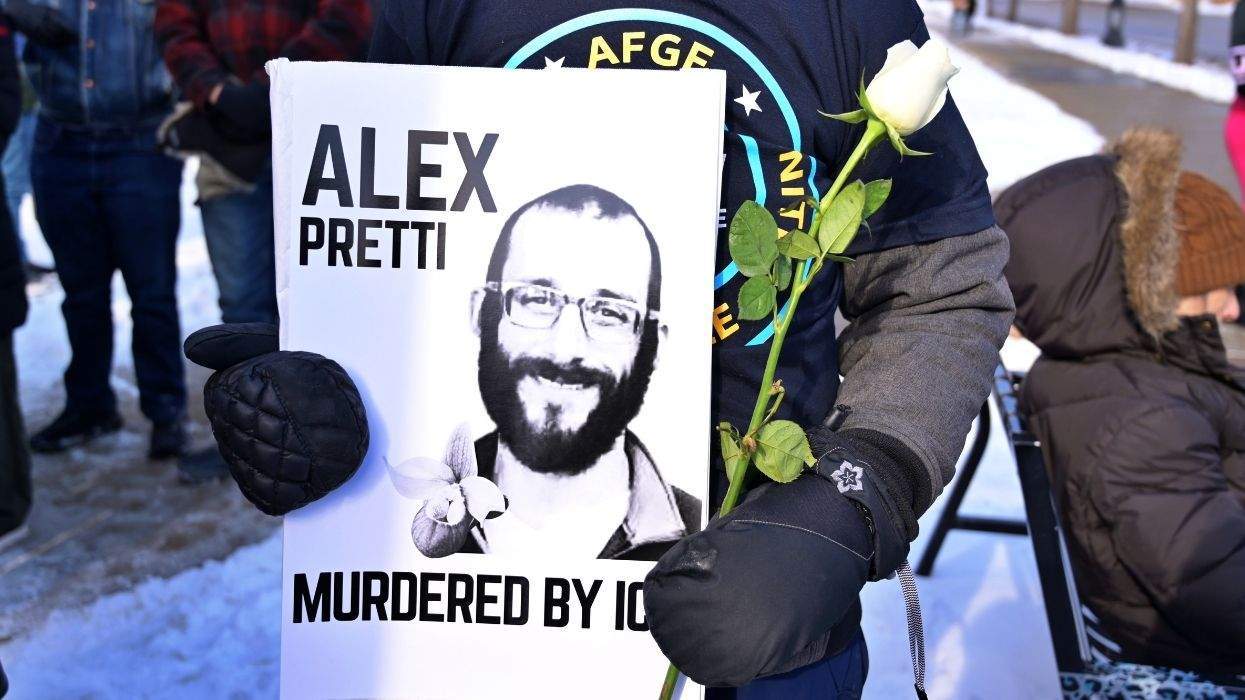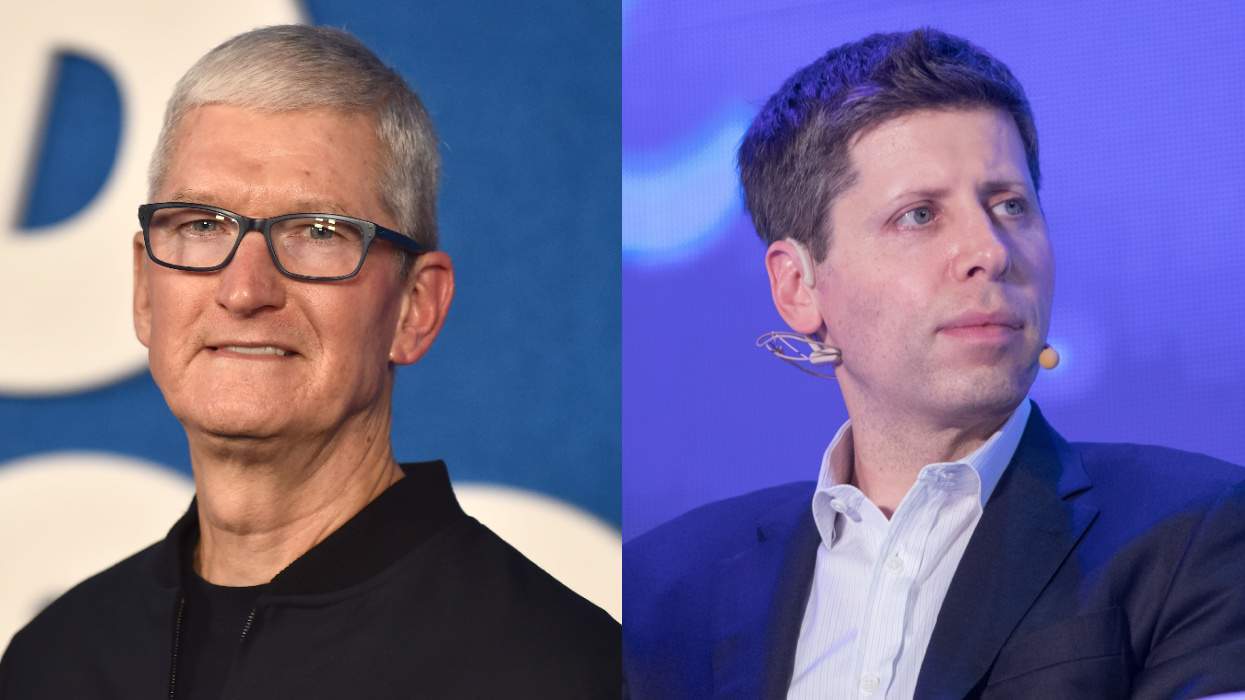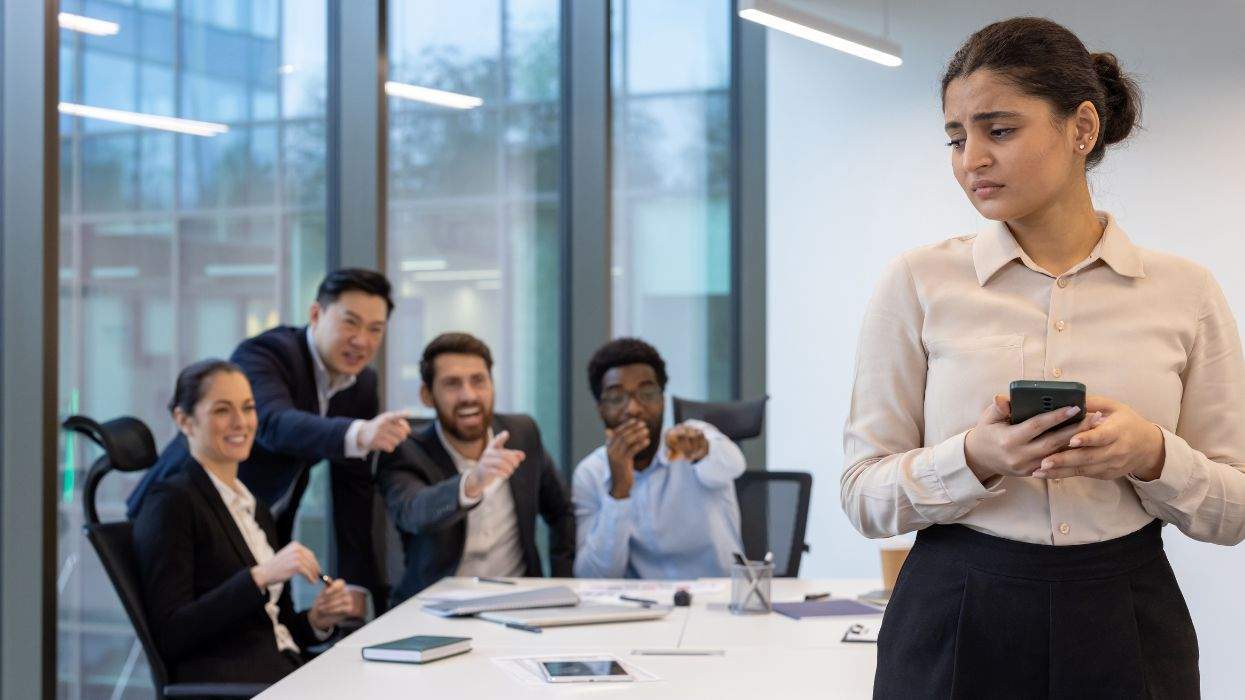As the 2016 Democratic National Convention is set to begin in Philadelphia, former Secretary of State and Democratic presidential candidate Hillary Clinton describes her views on the Equality Act, moving toward an AIDS-free generation, and "religious freedom restoration acts," among other topics.
We begin with some of the people in her life who were most instrumental in forming her thoughts on marriage equality.
You noted that as secretary of state you were not in a position to announce a domestic policy position regarding same-sex marriage -- but you did announce your views when you felt free to do so. You've said your views have been shaped over time by people you've known and loved. Can you share a story about someone who has helped shape your views?
Like many of us, my views on this topic -- and so much else -- have been influenced by people I know and love. Two of my parents' closest friends in Little Rock were their next-door neighbors, Dillard and Larry. They spent a lot of time at my parents', talking politics with my dad and helping my mom around the house. They visited my father in the hospital at the end of his life. It was actually Larry who held his hand as he died.
They're as loving and committed as any couple I've ever met. And over time, I came to realize just how deep an injustice it was that they couldn't be legally married. So it meant a lot to me when, after last year's landmark Supreme Court decision, I received an invitation to their wedding.
Dillard and Larry helped shape my whole family's views -- not only mine, but my father's as well. So I'm grateful to them.
And I'm grateful to all of the advocates and families and friends who never stopped insisting that what's right is right. They helped change my mind, and I'm very glad they did.
I know your daughter Chelsea has been involved in marriage equality efforts. Was she a factor in the view you hold?
Definitely. This is something she's always been passionate about. I'm proud of Chelsea for many reasons, and this is a big one.
Every national leader who is now pro-marriage equality has evolved on this issue. Do you feel you're held to a different standard than President Obama or Vice President Biden or Sec. Kerry, who have also changed their views?
No. LGBT Americans and all Americans have every right to hold us accountable.
You've said the Equality Act is a noble piece of legislation and deserves to become law, and that it would be your highest priority. But Congress seems very unlikely to pass it. What can you do in the face of an intransigent Congress?
Well, first, I do think it's a noble piece of legislation. In 2016, there are still places in America where LGBT people can be fired or evicted from their home, not because of anything they've done -- just because of who they are or who they love. That's deeply wrong. It goes against everything we stand for. And I think if more Americans understood that these injustices still exist in our country, they'd want Congress to support the Equality Act, which would outlaw discrimination against LGBT people in employment, housing, public education, public accommodations, access to federal funding and credit, and the jury system.
So that's one thing I would do -- take the case to the American people.
It's also important to remember that, even if Congress doesn't act, our next president can take important steps to protect the rights of LGBT Americans. Here's one example: President Obama has taken executive actions to protect LGBT people in employment, housing, and health care. Our next president can defend those actions or repeal them. Donald Trump has promised to repeal them. I will defend them and build upon them.
That's just one reason why the stakes in this election are so high.
What can be done from the Oval Office about the "religious freedom restoration acts" that sanction anti-LGBT discrimination, now law in at least 22 states?
I firmly believe that we can promote equal rights and dignity for all Americans and protect religious liberty at the same time.
America was founded on religious freedom. It's enshrined in our Constitution. And the Equality Act, for example, advances LGBT equality while maintaining religious exemptions that have been part of our civil rights laws for decades. So this should not be an either/or question.
Now, the concerted effort underway in a number of states to discriminate against LGBT people under the guise of protecting religious freedom is something very different. It's insincere and insidious. And we shouldn't let it stand.
As president, I will fight to make sure all Americans can live their lives free from discrimination, including LGBT Americans.
What is your reaction to Donald Trump's statement that he would sign the First Amendment Defense Act, which would permit taxpayer-funded discrimination by those who cite religion as a reason to deny services to LGBT people nationwide?
It's absolutely unacceptable.
Allowing people to use their personal religious beliefs as grounds for discrimination against LGBT people in the public sphere goes against everything we stand for. And I know a lot of deeply religious people who agree with me.
A number of important changes took place in the State Department when you were secretary, including ensuring that State Department employees in same-sex relationships received the same rights as their colleagues, and making it easier for trans Americans to get passports. Without an Equality Act, what is the danger of these positive changes -- and other Obama administration advances -- rolling back during a Trump presidency?
So much progress is at risk if Donald Trump is elected president. And we have to make sure all Americans understand this.
He promises to sign the First Amendment Defense Act, immediately rescind President Obama's executive actions protecting LGBT people from discrimination, and work to overturn the Supreme Court's marriage equality ruling. He's 100% wrong on each of those positions.
His comments about the court deserve a closer look. Our next president could appoint more than one justice to the Supreme Court. Donald Trump has said his ideal nominees include a judge who equated same-sex relationships to "bestiality," "pedophilia," and "necrophilia."
Maya Angelou said, "When somebody shows you who they are, believe them the first time." Donald Trump has shown us who he is when it comes to LGBT equality. We should believe him.
In 2011, in a speech in Geneva, you said, "Gay rights are human rights," before an audience of diplomats. It was an enormously impactful speech. Tell me about your decision to include that proclamation in your speech.
I actually said those words before, at the State Department's annual Pride event. One of our colleagues told me, "You need to say this to the world."
A few months before the speech, a gay activist named David Kato was killed in Uganda. His death happened against a backdrop of human-rights abuses against LGBT people around the world. In some places -- like the United States -- life for LGBT people, on the whole, was getting better. In others, it had never been worse.
I wanted to send a clear message of solidarity and love to LGBT people everywhere, from the activists carrying on David's work in distant places to the lonely, isolated young people here at home. I also wanted to deliver a strong message to national leaders that this issue mattered to the United States. So I made sure my speech refuted the leading antigay myths used to justify antigay laws around the world, shined a light on human-rights abuses, and lifted up countries that were doing right by LGBT people.
Most of all, I just wanted to say something that needed to be said. And I wanted people to listen and do something about it, just like they had after the 1995 Women's Conference in Beijing, where I said that "human rights are women's rights, and women's rights are human rights."
I was proud to deliver every word of that speech. And I'm just as proud to keep working to advance LGBT equality around the world.
You've pledged that you'll work toward an AIDS-free generation, but there's a shocking study out from the CDC that predicts that half of all African-American gay and bisexual men will become HIV-positive in their lifetimes, due to lack of access to health care, incarceration rates, and stigma, among other systemic causes. Is an AIDS-free generation truly possible?
Yes.
We're actually closer than we've ever been to an AIDS-free generation. Infection rates have fallen in many places. More people with HIV are getting life-saving treatment. More babies born to HIV-positive mothers are getting the treatment they need to avoid infection. Our strategies are working.
Still, we have a lot of work left to do. HIV and AIDS are still with us, and they disproportionately impact some communities: gay and bisexual men, communities of color, transgender people, and young people. In sub-Saharan Africa, almost 60% of people living with HIV are women.
To end this epidemic once and for all, we need to rededicate ourselves to fighting HIV and AIDS, especially in these communities, and leaving no one behind.
That means increasing research, expanding the use of medications like PrEP, capping out-of-pocket drug costs, and increasing the number of people in treatment worldwide. And it means reforming outdated, stigmatizing HIV criminalization laws.
I've lost friends and loved ones to AIDS. So many of us have. We owe it to them to continue this fight. And we owe it to all the people whose names we'll never know.
How can the U.S. play a more constructive role in the lives of LGBTs living under regimes that are hostile to LGBT rights, particularly when those regimes are U.S. allies?
Lesbian, gay, bisexual, and transgender people are entitled to human rights and dignity, no matter where they live. That's why I made advancing LGBT equality worldwide part of our foreign policy when I was secretary of state.
So what did that look like? We announced for the first time ever that we would take into consideration how a country treats LGBT people when we delivered foreign aid. We instructed American diplomats to raise concerns about specific cases and laws. We worked with partners to strengthen human-rights protections. I helped lead the effort to pass the first-ever U.N. resolution on LGBT human rights. And yes, I declared that "gay rights are human rights, and human rights are gay rights."
Back in Washington, we created a task force to support this work. We launched a program to offer emergency support to those on the front lines defending human rights for LGBT people. We also launched the Global Equality Fund to support the work of civil society organizations working on these issues around the world.
America has a moral obligation to keep standing up for the LGBT community and human rights around the world. As president, that's what I will do.
You've spoken out against both the Defense of Marriage Act and the "don't ask, don't tell" military policy, and both are now defunct. What is your answer to those who would attribute DOMA and DADT policies to you as a candidate?
There is no justifying the Defense of Marriage Act or "don't ask, don't tell." I believe LGBT Americans are entitled to full equality under the law. I'm glad that the majority of Americans feel the same way.
What could a Hillary Clinton presidency do to stem the violence against trans women of color?
I'm so glad you asked this, because it's a serious and urgent problem. Last year alone, at least 21 transgender women -- primarily women of color -- were murdered. That doesn't even begin to account for the violence that goes unreported or ignored.
We need to take on bigotry and discrimination wherever they occur and end this violence. We need to restore trust between law enforcement and communities by investing in training on issues such as implicit bias, use of force, and fair and impartial interactions with the LGBT community. We need to fight for strong antidiscrimination laws and better understand the incidence of violence by collecting data on gender-identity and sexual-orientation victimization.
And most of all, we need to say with one voice that transgender people are valued, they are loved, they are us, and they deserve to be treated that way.
On May 10, more than 100 clergypersons in the United Methodist Church [the faith you've been a lifelong member of] came out of the closet, at great personal risk. What is your view of the conflict in the UMC over gay clergy, who are expected to remain celibate and closeted?
I'm proud of the lessons my Methodist faith has taught me, and I'm proud of LGBT individuals everywhere who are choosing to live bravely as themselves. As we have been painfully reminded in recent months, that decision still carries too great a risk for too many. But I do believe that's changing, slowly but surely.
What can the president do to bring people together over differences of opinion on the equality of LGBTs?
Differences of opinion on LGBT equality may still exist in the hearts of some Americans, but they should not exist under our laws. As far as I'm concerned, that principle isn't up for debate.
Of course, changing laws often requires changing hearts. LGBT advocates, activists, and allies have been doing that for generations. As president, I'll be your partner in that work and champion a vision for our country that is inclusive, open, and striving toward true equality. I'll work alongside you to help pass the Equality Act, take on youth homelessness and bullying, end so-called conversion therapy, and fight discrimination against LGBT Americans and all Americans.
The LGBT community was targeted in the attack on the Pulse nightclub in Orlando, the deadliest mass shooting in our nation's history. On the same day, a bomb attack was reportedly thwarted just before the Los Angeles Pride parade. Apart from targeting ISIS, which you have spoken about, what more can be done to protect our community from homegrown anti-LGBT hate and violence?
What happened in Orlando is horrific and heartbreaking. It was an act of terror, and it was also an act of hate. The gunman attacked an LGBT nightclub during Pride month -- what should have been a safe space for people to be themselves, during a time when all Americans should be celebrating how far we've come.
My prayers are with the victims, their families, and the first responders. But prayers alone aren't enough. Lesbian, gay, bisexual, and transgender people are still targeted for harassment, violence, and hate. This is an urgent problem, and it demands action.
For starters, we need to take on the epidemic of gun violence in America. I believe we are more than capable of protecting Second Amendment rights and making sure guns don't fall into the wrong hands. Weapons of war have no place on our streets.
We should also strengthen and expand the collection of data around gender identity, sexual orientation, and hate crimes in order to address this issue in a smart, effective way. And we all need to call out discrimination and hateful rhetoric whenever and wherever it occurs.
Here's the bottom line: I want the LGBT community in Florida and across the country to know that you have millions of allies. I am one of them. And I'm going to keep fighting for your right to live freely, openly, and without fear. Hate has no place in America.

